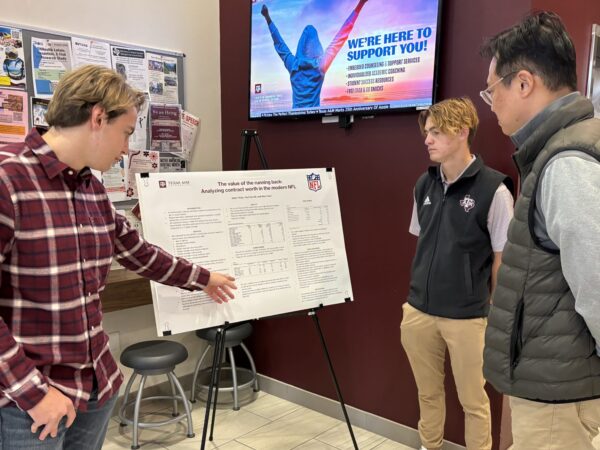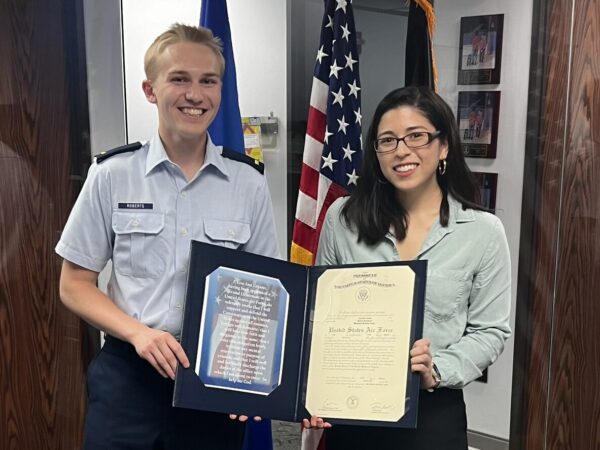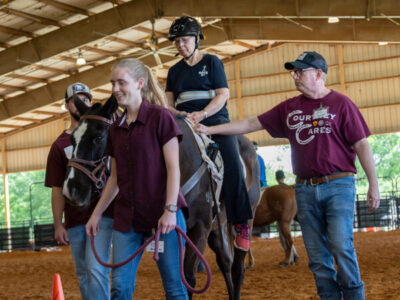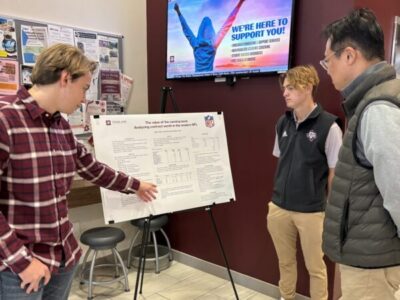Professor To Collect Data On Military-Connected Children
Despite the fact that there are more than two million military-connected students in American schools, there is no reliable data on the academic health or educational outcomes of those students. Dr. Robert Muller, clinical associate professor of educational leadership, is working to change that.
Earlier this month, Dr. Muller attended a meeting at the White House hosted by Dr. Jill Biden. The event involved discussions on Dr. Biden’s Operation Educate the Educators initiative and the future of support for military-connected children.
There are a number of educational challenges surrounding military-connected students, including separations due to deployments and high mobility rates. Active duty families move three times more often than civilian families, meaning students often move six to nine times during their P-12 education.
As educators, there are challenges in working with military-connected children. Many educators may not be aware of the social, emotional and learning challenges specific to these children. In some schools, educators are not even aware of who their military-connected students are or how to support their unique needs.
“Not every public school is in a military community where nearly all of the student population is military connected. Not every teacher, faculty member and administrator lives the same life as military families do, day-in and day-out. And, in some cases, not all public schools and teachers have been afforded the opportunity and resources they need to truly understand how to recognize and support the needs of these unique and inspiring students,” explained Dr. Jill Biden.
“Part of the discussion at this event was how we can help teachers develop a greater awareness for what a military child might be going through at any particular time. What kinds of things can we do to educate the educators around good techniques for military students? What’s good for the military student is really good for every student,” explained Dr. Muller.
The first step in that process involves the military student identifier, passed as part of the Every Student Succeeds Act last year. It will provide data to military leaders, educators and elected officials at all levels of government to understand how military-connected children are performing in school, to enable them to adjust programs, direct resources and adopt strategies to support these children.
Dr. Muller is working with the Military Child Education Coalition (MCEC) to create a database using the identifier to take longitudinal looks at what the data tells us about military students.
“Let’s take a look, see how they’re doing and then investigate other ways we can assist and support school districts. It’s all about how we can improve public education for military-connected students,” explained Dr. Muller. “For example, is the ethnicity of military students different from the population at large? We don’t know. Are military-connected students under-represented or over-represented with respect to special programs? Are they represented at the same rate in gifted and talented as non-military students? We don’t know because we haven’t had the identifier. Now we can go in and look at those questions all the way up to how military students are achieving compared to non-military students.”
Dr. Muller also discussed the importance of not just looking at military-connected children from a deficit model.
“Do military kids have characteristics and develop characteristics that help them be very strong citizens as they mature and age? I think the answer is yes. I think military students have demonstrated a level of resiliency and grit because of the experiences they’ve had. I think there are a lot of strengths and a lot of things we can learn from our military-connected students.”
Dr. Muller and the MCEC hope that by compiling the data from the military student identifier, they can take lessons learned from military-connected students to help all students in classrooms across Texas.
About the Writer
Ashley is the Media Relations Coordinator and responsible for news coverage in the Department of Teaching, Learning and Culture as well as the Department of Educational Psychology.
Articles by AshleyFor media inquiries, contact Ashley Green.
Fundraising
To learn more about how you can assist in fundraising, contact Amy Hurley, Director of Development ahurley@txamfoundation.com or 979-847-9455














